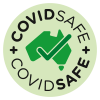About
Karen CresshullA Message From
Karen
I immigrated to Australia in 2012 from Canada and established a thriving business in a regional area of South Australia. Daily, I work with wonderful clients from all walks of life & help them navigate & overcome speech, communication and feeding challenges. My business continues to grow and flourish in Whyalla, and other regional towns. My aim is to offer evidenced based practice to my clients and their families to ensure that they are making progress in all of their therapy goals. I look forward to continuing to learn and flourish in all the work placements and provide quality therapy for all my clients.
Why Speech on Eyre?
What sets me apart is:
- Individualised, tailored therapy
- High levels of experience and care
- My expertise and highly level of qualification
- A focus on wellbeing and dignity
- My compassionate and supportive approach
- An understanding that each person has their own unique set of challanges which helps to guide our therapy sessions
- Commitment to you
- Ongoing learning and continued professional development
Testimonials
What Parents/Supporters are Saying
“Thank you so much for your time today and for making the trip to Roxby. We appreciate your commitment to providing speech pathology services to students living remotely and supporting the teachers and ESOs within our school!”
“Oliver’s speech therapist- Karen Creshull is absolutely amazing and Ollie seriously just adores her. He’ll ask to go visit her even when it’s not his therapy days.
“My son was born with a bilateral cleft palate. Thanks to the help of Speech On Eyre, he has beaten expectations of experts at the Australian Craniofacial Unit, and is speaking like any other child his age. We have a strong and confident young man who’s future is anything he desires it to be.”
“Fantastic clinician, Whyalla is lucky to have such a dedicated speechy.”
“Couldn’t praise Karen enough for the help she puts in with my boys who both suffer from speech and learning delays.
It’s a nice change to come across someone who is passionate about her job, which is very hard to find these days.”
“It’s great to find a person who is passionate about her clients. You are truly amazing and I thank you for your continuous support and dedication to my son.”

Our Mission
What SOE stands for:
Our speech therapists have experience treating individuals who have feeding/swallowing disorders, autism, alternative communication needs, articulation disorders, language disorders, fluency disorders, multiple and severe disabilities, fluency as well as cleft lip and/or palate. In addition, we conduct social groups that are lead and managed by speech therapists.
We provide therapy services in locations that accommodate the needs of each client and their family. We can provide home visits, school visits, as well as services provided in our clinic locations in Whyalla, Port Augusta, and Roxby Downs. Speech On Eyre is also offering services through Zoom platform.
Decision Making & Consent
Consent is the permission given by a person or substitute decision maker concerning decisions that affect a person’s life. Consent requires a person to be informed about what they are giving consent to or for. Consent requires an understanding of the decision at hand which is referred to as capacity. When a person has the capacity to make a particular decision, they can:
• understand the facts and choices involved
• weigh up the consequences, and
• communicate the decision.
...
Some people may need support to exercise their capacity to make decisions that affect them, and to increase their decision-making skills and confidence. Participants are always presumed to have the capacity to make their own decisions and give consent when it is required, unless there is evidence otherwise. We don’t assume a person lacks capacity because of their age, appearance, disability, behaviour, language skills or any other condition or characteristic.

